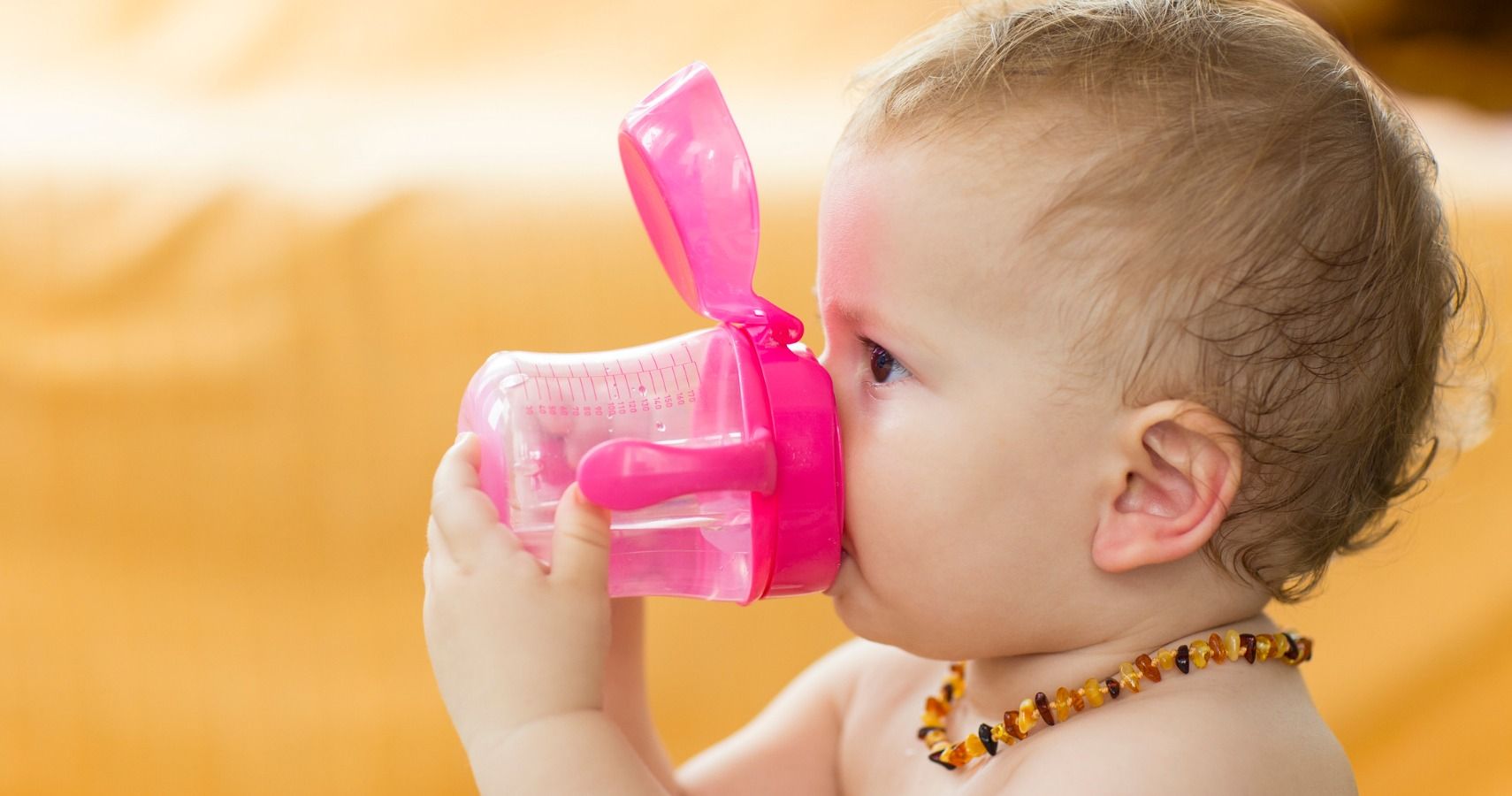Teething is right up there with potty-training on the list of difficult stages for parents and their kiddos. It can be painful and cause so much discomfort! Plus, it seems to go on forever. We're always looking for ways to help soothe our baby's gums during this time. Some parents rely on using over-the-counter medications like Tylenol to help relieve the pain, inflammation, and occasional fevers associated with teething. Others use special teething gels and pills. And some parents rely on more holistic remedies, like essential oils and teething necklaces. You've probably seen those little amber necklaces on babies before, or maybe you've used them on your own babies or were planning to use one when your infant started teething. If that's the case, you're going to want to be aware of a new warning from the FDA about the popular teething necklaces.
The Food and Drug Administration is warning parents to avoid using teething necklaces because they pose a risk of strangulation and choking. Their warning included the story of a 7-month-old baby who sadly passed away after they choked on a bead from a wooden teething bracelet (the parents were supervising the baby). Additionally, teething necklaces can get caught on cribs or other items and cause strangulation. The FDA noted the case of an 18-month-old who died after being strangled by their necklace during a nap.
The idea is that Baltic amber teething necklaces release a substance called succinic acid, which is absorbed into the skin and provides relief from pain and inflammation associated with teething. But experts say there is no evidence that the necklaces are effective. Lara McKenzie, principal investigator in the Center for Injury Research and Policy at Nationwide Children’s Hospital, says that no evidence supports the idea that the acid can be absorbed into the skin and provide pain relief. Furthermore, the acid only seeps out of the amber when exposed to a temperature of at least 200 degrees Celsius.
The FDA recommends using frozen items, chew toys, gum massage, or Tylenol to help relieve teething pain. They do not recommend using numbing gels or creams, as they can contain benzocaine, which can restrict the amount of oxygen carried in the blood.
READ NEXT: Why Teething Is Worse For Toddlers At Night

